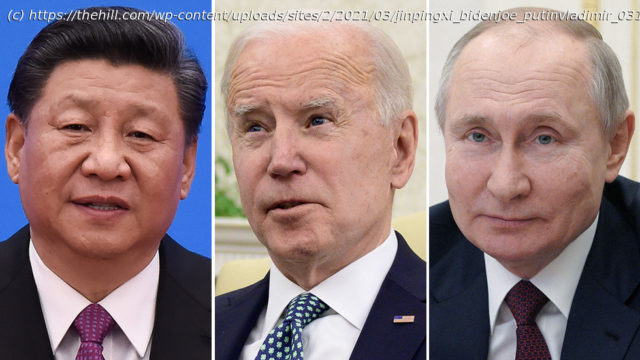Array
A Chinese surveillance balloon discovered over Montana has prompted the Biden administration to postpone Sec. of State Antony Blinken’s visit to Beijing — the first high level trip in four years. Meanwhile, support for Ukraine is caught between President Biden’s refusal to send F-16 fighters to Kyiv and former British Prime Minister Boris Johnson’s plea for the equivalent of President Kennedy’s “pay any price” to save Ukrainian democracy from an out-of-control dictator. In both cases, U.S. relations with an adversary continue to worsen.
And they prompt the question: Would the U.S. go to war with China over Taiwan and with Russia over Ukraine? Biden has left the issue of Taiwan purposely ambiguous, which is smart. About Ukraine, Biden has said that the U.S. has no intention of escalating the conflict into World War III. Without taking a poll, few members of NATO would dissent from that view or commit to a war with Russia.
Giving these realities, what policy choices does the U.S. have? The potential casus belli with China is an invasion of Taiwan. Making that option too costly for Beijing to consider would seem the most effective objective. And that does not require direct American engagement. By adopting a “porcupine,” or asymmetric, defense, Taiwan can prevent China from invading. The crucial question is why Taipei has been so reluctant to move to do so.
Ukraine is more complicated and probably more dangerous because a war is being fought, not hypothesized.
Start
United States
USA — China US strategies toward China and Russia remain a mix of contradictions






